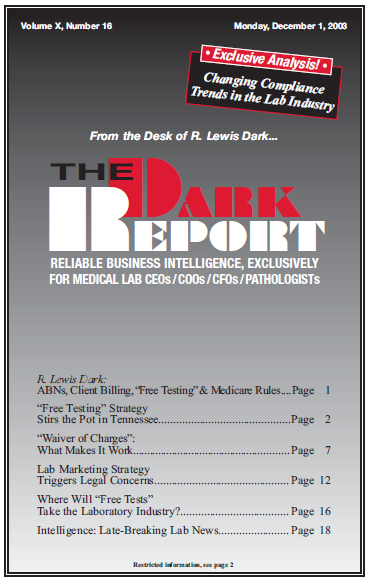CEO SUMMARY: Little-used in the 1990s, when laboratory test ordering and billing practices were under intense scrutiny by federal regulators, the strategy of “free testing” is popping up in more regions around the country. To comply with compliance guidelines, labs using this strategy generally ask the physician to sign contracts representing and warranting that circumstances …
“Waiver of Charges”: What Makes It Work Read More »
To access this post, you must purchase The Dark Report.


